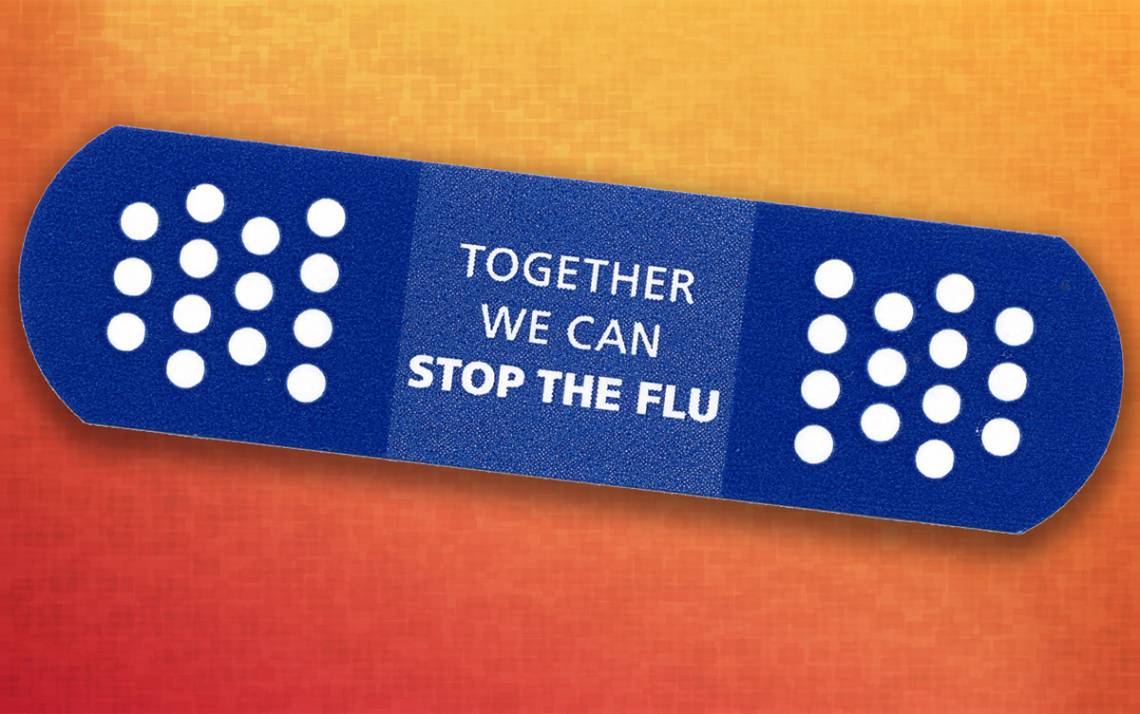Flu Vaccine Requirement Extended to University Staff and Faculty Working On-Site
Free influenza vaccinations available at six locations, deadline for vaccination is Nov. 10

To better protect the Duke community from COVID-19, vaccinations against the annual influenza virus will be required for Duke University staff and faculty who work on-site.
Duke University Health System has required annual vaccinations against the influenza virus for health care workers since 2013. The School of Medicine and School of Nursing added the requirement in 2014 for employees who interact with patients. In 2019, the School of Medicine and School of Nursing extended the requirement to all faculty and staff.
This year’s expansion of the policy to include the staff and faculty of Duke University who work on-site represents the next evolution in Duke’s effort to safeguard campus, and the wider community, from the influenza virus and help ease the burden on those fighting COVID-19.
“The COVID pandemic has really raised everyone’s awareness of the potential adverse impact of a viral condition,” said Dr. Carol Epling, Duke’s director of Employee Occupational Health & Wellness (EOHW).
Beginning on Sept. 1 through Nov. 10, 2020, appointments for Duke employees will be available at vaccination clinic locations on-and-off campus, including at Duke’s Employee Occupational Health & Wellness (EOHW) clinic in Duke South adjacent to West Campus. Unlike previous years, appointments are required due to physical distancing. Vaccinations can also be obtained at Duke Primary Care providers, area pharmacies and other locations, but documentation must be provided.
Staff and faculty who wish to request a medical or religious exemption must complete and submit the required paperwork before Monday, October 19, 2020. The deadline for vaccination is 10 a.m. Tuesday, November 10, 2020, unless approved for an exemption.
Duke Health staff and faculty who choose not to be vaccinated or otherwise do not declare an acceptable exemption face disciplinary action or the equivalent up to and including termination from employment. All other University staff and faculty working on-site who choose not to be vaccinated and have not been approved for an exemption will lose access to Duke’s buildings and facilities.
While influenza and COVID-19 are caused by different viruses, they have similar symptoms and can be extremely contagious and dangerous. Epling said that because some of the symptoms of flu and COVID-19 are similar, it may be hard to tell the difference between them based on symptoms alone. An outbreak of influenza due to low community vaccination rates could result in emergency rooms and clinics being overwhelmed while already responding to COVID-19 and an increased chance of spreading both respiratory illnesses in the community.
“It behooves us as an employer to do everything we can to keep our employees safe from viral infections,” Epling said. “It’s going to get confusing for us this flu season when we have a flu circulating alongside COVID. So, the more we can do to lessen the chances that an individual experiences influenza illness, the better.”
Children and other dependents of Duke employees cannot get a flu vaccine at the locations offering vaccinations to Duke University and Health System employees and students. They must make an appointment to get a flu vaccine at a Duke Primary Care location or other vaccination provider.
Seasonal flu activity often begins as early as October and can continue to occur as late at May. Flu activity most commonly peaks in the United States between December and February. Influenza killed 186 people in North Carolina last season.
The COVID-19 pandemic, and the resulting policies on masks and social distancing, have also underscored the important role good health habits, such as getting an annual flu vaccination, play in keeping the community safe.
 Emily McGinty, Duke Campus Farm assistant program manager, can attest to that increased awareness. She hadn’t consistently gotten a flu vaccination in past years, but in 2019, that changed as she suffered her first severe bout of the flu in November, before she got vaccinated against the flu a month later.
Emily McGinty, Duke Campus Farm assistant program manager, can attest to that increased awareness. She hadn’t consistently gotten a flu vaccination in past years, but in 2019, that changed as she suffered her first severe bout of the flu in November, before she got vaccinated against the flu a month later.
Those memories, combined with everything she’s learned during the COVID-19 pandemic about how easily viruses spread, and the consequences of not taking steps to limit that spread, have convinced her of the value of the vaccination against the flu.
“I feel much more accountable now to the really important public health notion of it not just being about you,” McGinty said. “You have to think about what you could be doing for other people in addition to yourself. Since the pandemic started, I’ve really taken to heart the mask policy and I will be carrying that over into getting my flu shot as soon as I can and encouraging other people to do the same.”
Got something you would like for us to cover? Send ideas, shout-outs and photographs through our story idea form or write working@duke.edu.